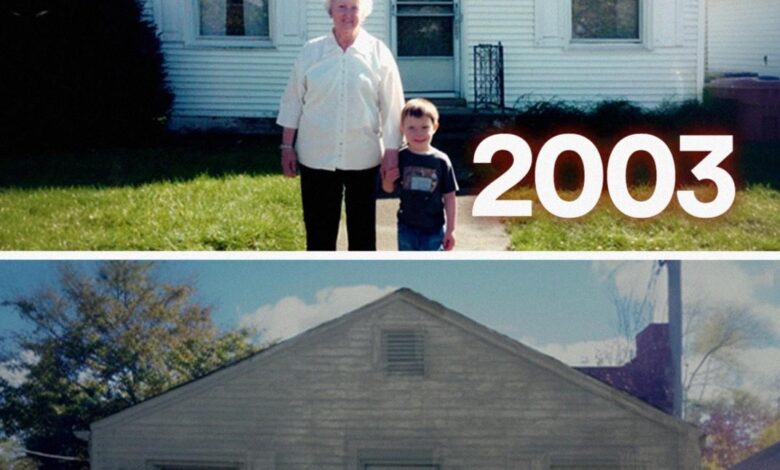
My name is Margaret, and I never imagined life would unfold this way. I wasn’t born with unshakable strength; I grew into it. Most of my life was quiet, filled with bookshelves and order as I worked as a school librarian. I baked blueberry muffins every Friday and knitted blankets for every new baby at church. My world shifted when I lost my husband to cancer at forty-two. From then on, my only child, Anna, was the center of my life.
Anna had her father’s smile and my stubborn streak. By her late twenties, she had a career in marketing, a snug little home just down the street, and most importantly, a little boy named Ethan with wide brown eyes and curls that tumbled across his forehead. My grandson was the joy of my life.
Then came the call I’ll never forget. Anna had been on a flight one rainy afternoon when a mechanical failure caused the plane to crash. There were no survivors. One moment we were laughing on the phone about something Ethan said at preschool, and the next moment, she was gone forever.
I remember falling to the kitchen floor, a coffee mug shattering at my side. I didn’t even feel the glass cutting into my hand. I only whispered her name over and over, like saying it might bring her back.
Ethan was three at the time. He didn’t understand what death meant, only that his world had changed. He clung to me with tiny hands and tearful eyes, and I knew in that moment my life had one mission: raising him.
But fate wasn’t done testing us. Just weeks after Anna’s funeral, I heard a knock on her door. I opened it to see Mark—my son-in-law—standing there with Ethan’s small suitcase at his feet. His voice was flat, rehearsed.
“I can’t do this, Margaret,” he said. “I’m still young. I want to live my life. You take Ethan. You’ll manage.”
I was stunned. “Mark, he’s your son. He’s only three.”
But he had already decided. He turned, got into his car, and drove away. No hug, no goodbye, no promises to call. He left his child behind as if fatherhood was a burden too heavy to carry.
I looked at Ethan, who was dragging his stuffed rabbit across the porch, unaware of the enormity of what had just happened. I scooped him up, kissed his forehead, and whispered, “It’s you and me now, baby.” And it was.
We stayed in Anna’s home, keeping her memory alive in every corner. Money was tight, so I worked evening cleaning shifts and mornings at a bakery. Some days I came home bone-tired, flour in my hair and blisters on my feet, but Ethan’s laughter made it worthwhile. He grew up thoughtful, kind, and resilient. By the time he turned six, he had stopped asking about his father altogether.
Years passed, and Ethan became my shadow. He carried groceries, folded laundry, and told me often, “Grandma, you’ve done enough. Let me help.” Watching him grow into a man filled me with pride.
At twenty-five, Ethan revealed just how far he had come. Sitting across from me at the kitchen table, he slid a folder forward. “This house is ours,” he said. “I don’t want you living alone anymore. Come with me. Let’s build a home together again.”
He had done well in his career, far more than I ever expected, and soon we moved into a stunning new house—tall windows, polished stone, and a yard that looked like something from a magazine. For the first time in decades, I felt safe enough to exhale.
We still owned Anna’s old house, though it had fallen into disrepair. Weeds covered the yard, and the paint peeled from its walls. Ethan often said he wasn’t ready to part with it. Neither was I. It was full of memories.
Then came the phone call from our old neighbor, Mrs. Palmer. “Margaret,” she whispered, “you won’t believe this. Mark is back. He pulled up to the old house, pacing around, asking about you and Ethan. He looked terrible. Worn down. But I didn’t tell him anything.”
When Ethan heard, he didn’t hesitate. “If he wants answers, he can come here. Let him look me in the eye.”
Two days later, Mark’s rusted car rolled into our driveway. He stepped out thinner, grayer, and rougher, but with a smugness that made my stomach twist. He greeted Ethan as “son” and pulled a document from his pocket.
The envelope contained a legal claim—an attempt to declare himself co-owner of Anna’s old house. “Back when we bought it, I was married to your mother,” he said. “That makes me entitled. Sign this, and I’ll take the old place off your hands. Seems fair, doesn’t it?”
Ethan’s voice was calm but firm. “That house isn’t ruins. It’s where Grandma raised me, where I learned love and resilience. You abandoned us. You don’t get to come back now and claim what isn’t yours.”
Mark sneered. “You owe me. Without me, you wouldn’t exist.”
Ethan didn’t flinch. “And without Grandma, I wouldn’t have survived. You left. She stayed. She fought for me. That’s what matters.”
He handed the envelope back and stepped away. “There’s no place for you here. Not in that house. Not in my life.”
We closed the door behind him, a simple act that felt like sealing away years of pain.
Later, Ethan vowed to restore Anna’s house—not as property for profit, but as a legacy. “That home deserves dignity,” he said. “It’s Mom’s story. And ours.”
As I looked at him—this man who had grown from a boy abandoned to a man of strength and integrity—I felt a peace I hadn’t known since Anna’s death.
Because family isn’t defined by who leaves. It’s defined by who stays. And in the end, it was Ethan and me, standing side by side, just as we always had.